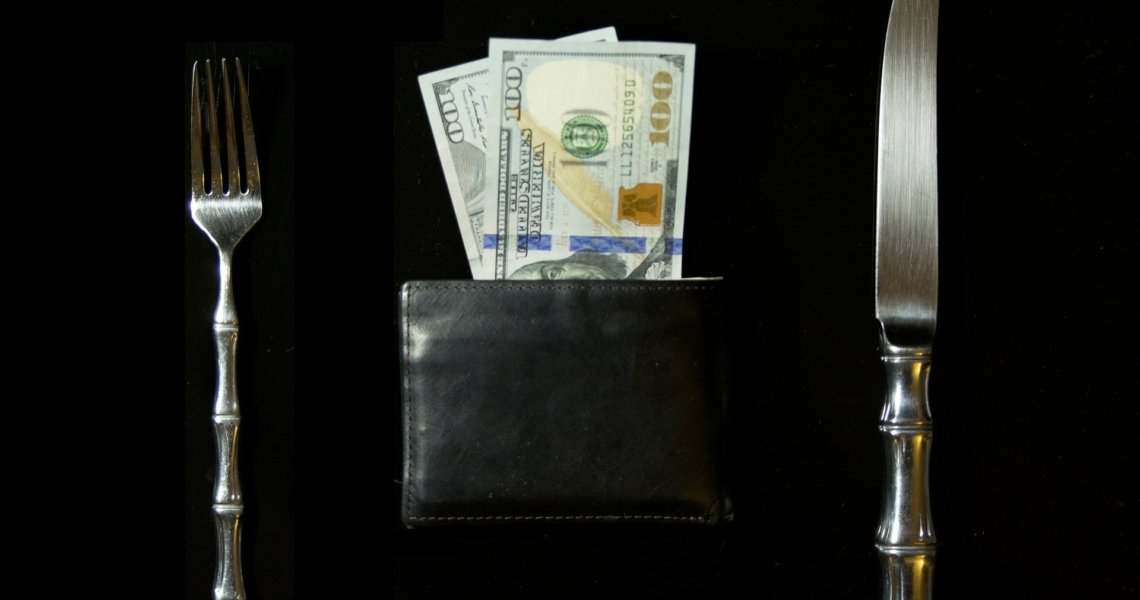We’re all tired of hearing it but…Covid. Truth is, more of us are struggling than before.
If you’re a Stay-at-Home mommy, chances are you’re surviving off one salary.
And for some of you, things are just tight for various reasons.
In our case, we’ve made the choice for me to be at home with our girls at least until they’re in school. We knew it would mean a tight budget. We didn’t realise quite how tight things would be. So we’ve had to learn some tricks. Want to know what they are? Of course, you do, otherwise you wouldn’t be reading this. So I’ll stop blabbing and get right into it.
Use What You Have
I first came across this concept from Simone from Mama to the Power of 4 and then from Jordan Page from Fun, Cheap or Free. I have seen so many people with fridges stuffed full of groceries and watched people throw out things that have gone bad. To prevent wasted money and wasted food, use what you have in your fridge, freezer and pantry. Jordan calls it shelf cooking. Don’t shove things to the back. Use them up instead. You’ll be surprised how much money you save!
Work Out the Essentials
Make a list before you go to the shop and work out what your essentials are. Do you really need chutney or is it a nice-to-have? Work out how many treats you are having – coffees out, the odd sweet treat, hot chocolate or fancy coffee, juice, snacks, etc. Have a good think about what is essential and what is not. Cut those things out and see how much less you spend.
Minimise Treats
For us, popcorn is a cheap treat. Sometimes, I’ll make biscuits with the girls. On the very odd occasion, we have the cheapest ice-cream cone which comes to under R25,00 for all of us. On the weekend, if there’s enough money, my husband and I will share a chocolate slab. Other than that, we don’t do much else in the way of treats. Work out what you can spend on treats and stick to that. And make what you can at home.
Shop Once a Week
I am an impulse buyer. I cannot resist a good special! So let me loose in a shop and magically, a whole lot more things find their way into my trolley. During lockdown, I only went once a week. It made such a difference. Less impulse buying!
Have a Weekly Budget
This was tough and still is. Sometimes we need more than other weeks. And that will happen. But if you have a monthly budget and you’re like me, you might use most of it up in the first two weeks and be counting the pennies for the rest of the month. This way, you have an allocated amount each week and it makes you more conscious when you’re adding things to your trolley.
Know your Prices
Now that I have to wrangle two kids and a trolley, I am not as good as I used to be. But I could tell you the price of everything in my trolley. I watched as it was scanned through and checked that the marked price was the same one that came up. I know what things cost and I know when it’s a good special. I also used to shop around because on my way home, I passed every different shop. Now, I take a look and if there are a few things on special, I’ll make the extra trip. Sometimes, it means buying a cheaper coffee one month. Or going without something else because I refuse to pay the extra R15,00 if I don’t need to. But every cent adds up!
Shop on Special
Don’t buy things at the full price if you can help it. That does sometimes mean spending a little more than you budgeted for in a specific week but only buy it if you will be needing more in the next week or two. This means knowing what is in your house so you know when you need to stock up. It also means that when you are going past a shop you don’t normally, you can check their prices on the things you need and see if they are cheaper than your local shop.
Don’t Impulse Buy
This is hard for me when things are on special. Especially if it’s a good one. I literally have to give myself a pep talk (sometimes out loud) and tell myself that we do not need that item and it wasn’t on my list so I need to keep on walking by. Stick to what is on your list so you are not tempted to spend more.
Meal Plan
I’ve found this so useful on so many levels! Firstly, you’re not as tempted to order out on nights when you don’t have a plan. Take something out to defrost at the night before, beginning of the day or at lunch – you’ll have no choice but to use it! It also motivates you to cook more than trying to come up with a plan when you have whining children or when you have walked in the door after a long day at work. Lastly, it means you shelf cook and use up ingredients you have in your house before they go off or before you spend money unnecessarily at the shop.
Sauces are Your Friend
One thing everyone needs to understand – budget meals are not always the healthiest because they generally include a lot of carbs! Veggies, meat and anything organic is darn expensive! I still make sure we have at least two veggies in our dinners and some form of protein. But the bulk of our meal is carbs and sauces. I often make some form of white sauce. Sometimes I add margarine to make it taste a little less plain or some herbs.
Make Meat Stretch
A lot of people say meat is expensive, which it is. But so are veggies! I am sometimes horrified at the cost of fresh produce! And unless you’re eating lentils and beans for dinner, our meat works out cheaper than the veggies because I make it stretch. Chicken is the cheapest so we eat that often. Roasts are often cheaper than fillets so I sometimes buy one roast for the week. Sometimes, I can get 4 or 5 meals out of it. We just don’t have a lot. If we use fillets, I will split one medium sized fillet between four of us. If you shred the eat, it works out to about the same quantity as a tin of tuna. This is where you add sauce and veggies. I used to plan my meals around meat. Now I plan them around meat and carbs.
Cheap Breakfasts and Lunches
Cereals are darn expensive (never mind muesli and yoghurt and smoothies!) And then you add a ridiculous amount of milk! So we eat oats. And we have eggs and toast. On special, eggs are less than R2,00 an egg. The girls (myself included) have one egg and my husband gets two. So for the four of us, breakfast costs a little over R10,00. Twice a week, we have a “sugary,” unhealthy breakfast – crumpets on Wednesdays and pancakes on a Saturday or Sunday.
For lunch, we eat bread in some form. My husband is gluten intolerant and used to take rice cakes and peanut butter. Until we realised that a packet of rice cakes costs the same as a bag of rice which will last a month! So he takes rice to work each day unless there is a tiny bit of leftovers from the night before.
Limit Your Options
You don’t need a host of options. No, it’s not the nicest to have the same thing every second day. But, we’re cutting costs here, remember. So we have peanut butter on bread for lunch everyday. Sometimes, we have jam but I limit that because of the sugar. We also have Bovril but the girls aren’t that into it. That’s it. For veggies, I only have one green veg and one orange veg in the house most of the time. We eat those veggies in some form every night. We generally only have one type of fruit in the house and it’s apples or bananas. Each person is allowed one fruit a day for a snack.
Make Homemade Foods
I buy flour in bulk (12.5kgs – the good stuff and it works out to about the same as shop flour per 2kg bag) and I use it up over two or three months. I make my own everything – biscuits, wraps, pasta and bread. When we have people over, I make a baked pudding. When we need to take eats somewhere, I make my own to take. It saves a lot of money!
Save things and use leftovers
I also save and freeze the juices from meats such as wors or the drippings from a roast and add it in for taste. I often poach chicken breasts in stock (they cook through more easily than pan frying and they taste amazing – also tender) and I freeze that stock and add it to stir-fries, boiling potatoes for mash, etc. If there is enough dinner for another meal, we don’t eat it for lunch the next day but rather eat it for dinner. If there is a tiny bit of meat, I add it to another meal.
Be inventive
One thing a low budget has made me do is make a lot of things I wouldn’t normally make and it’s made me improvise. If I find a recipe online that calls for something I don’t have, I leave it out or substitute. If it needs self-raising flour, I make my own. If it calls for butter, I use margarine. There are some things like buttermilk where you can make your own. I often Google “substitute” or “homemade.” You’ll be surprised what Google comes up with!
There you have it! I did think to myself recently that I hope I never forget the lessons I’ve learnt through this stage. It’s taught me to be less wasteful. It’s taught me that we need a lot less than we think we do. It’s given me a new sympathy for people who have a smaller food budget than I do. I’ve learned how to buy what I need rather than what I want. And it’s made for some yummy and interesting dinners that I never would have cooked otherwise!
Photo Credit: Derek Robinson
Tags: breakfast, budget, cook, cooking, dinner, food, freezer, fridge, groceries, homemade, income, inventive, low income, lunch, money, pantry, shelf cooking, shop, spend, spending, treats, weekly spending






So helpful Kate! Thank you for sharing these lessons! It made me think of the different seasons in life – some of plenty, some of scarcity – and through this period you and your family are more equipped than others for whatever the future holds for us all! I cringe at my wastefulness. I want to change in this. I have learnt a lot through your shared personal lessons and want to practice them – to our God’s glory!